Batemans Bay
Elders
Consultation to Prioritise Cultural Values and Scope of
Works in the Cullendulla Catchment and Bhundoo River
March 18, 2024, Ling Meng
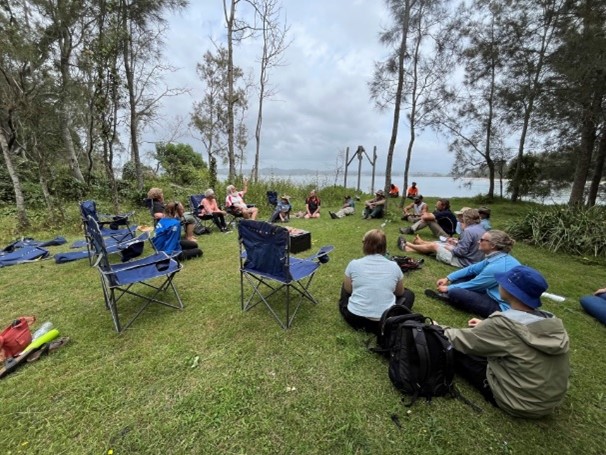
Consultation with the Local Indigenous Elders from
Prof. Xiao Hua Wang LinkedIn
On the 13th of March
2024, a study group from UNSW Canberra consisting of
Professor Xiao Hua Wang, Dr Felix Deng, and Oceanography
Honours student Tilly Dall convened in Yangary (Batemans
Bay), NSW. Their purpose was to engage with Local
Indigenous Elders and various stakeholders, including
representatives from NSW Parks, Batemans Bay Local
Aboriginal Land Council (LALC) Walbunja Rangers, NSW
Fisheries, and Project Planners. The meeting commenced
with a Welcome to Country at Cullendulla Reserve on
Square Head Track 1, where Walbunja Man Adam Nye
provided a comprehensive tour, emphasising the cultural
significance of the area.
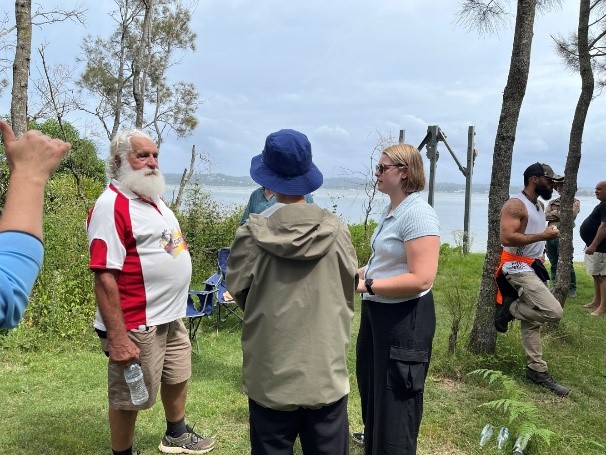
Tour of the affected areas
Throughout the
consultation, community priorities were identified,
centring around the establishment of a Cultural Fire
Management Unit. Traditional backburning emerged as a
crucial strategy to address issues such as dieback,
disease, and erosion, while also aiming to restore fish
traps. Additionally, concerns were raised regarding
erosion, particularly its impact on cultural sites such
as middens and meeting places, as well as seascapes of
salt marshes and mangrove systems. The implementation of
fire cycles every five years was suggested as a
management tool.
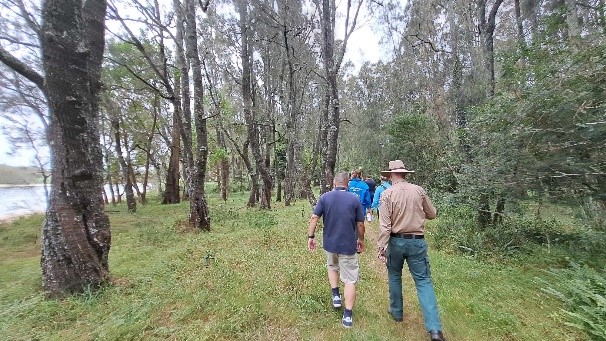
Students learning traditional knowledge about the sea
country from the Local Indigenous Elders from Prof.
Xiao Hua Wang LinkedIn
The Local Indigenous
Elders underscored the significance of Cullendulla,
highlighting erosion's adverse effects on access to
cultural sites and the redirection of drainage from
roadworks exacerbating land erosion. The degradation of
the land prompted calls for restrictions on access to
the national park, advocating for its rezoning as a
cultural heritage site, and the rehabilitation of its
resources. Furthermore, the Local Indigenous Elders
demanded meaningful consultation with National Parks for
rezoning purposes.
The pressing need for
action was emphasised, citing the loss of approximately
50 meters of coastline over the past 24 years. Proposed
initiatives included the rehabilitation of fish
populations, the construction of pathways for human use
to facilitate regeneration, and educational excursions
for school children.
Oceanographic concerns were also addressed, with a focus on stabilising fish traps and mitigating erosion. Collaboration with rangers for maintenance, monitoring water quality, assessing beach profiles, and addressing sediment siltation were identified as key priorities. However, challenges such as 3-dimensional mapping of fish traps that requires AUVs with high resolution cameras complemented by satellite lidar technology was discussed.
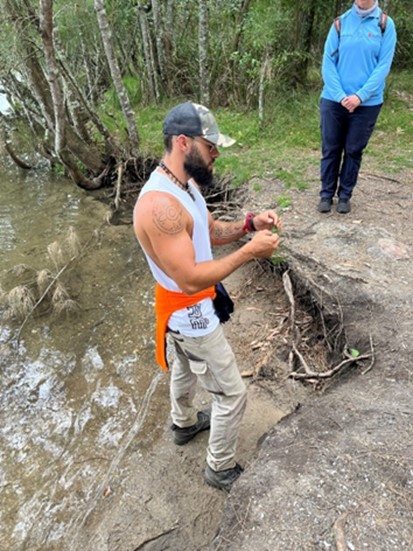
Eroded Cultural Site from Prof. Xiao Hua Wang LinkedIn
The tour further
highlighted the erosion of river edges, resulting in the
loss of culturally significant information and
historical layers. Urgent measures, such as calculation
of sediment budgets and fluxes in the Bay, were
suggested to understand and mitigate erosion's impact on
the region's cultural heritage.
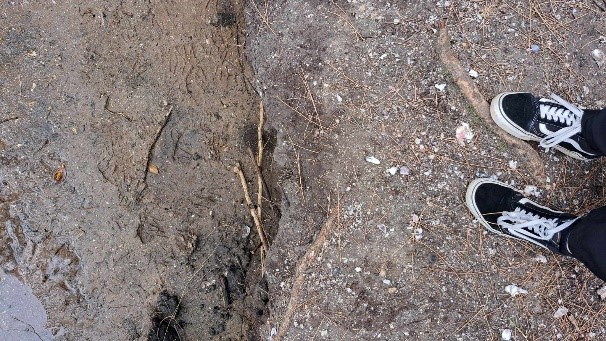
The hope is that the
Oceanography Honours research supported by the Batemans
Marine Park can be part of this project and offer
solutions to address some of these coastal hazard
issues. This further emphasises the significance of
interdisciplinary collaboration in addressing the
challenges faced by the community.
In conclusion, the
Batemans Bay Elders Consultation revealed a profound
commitment to preserving and restoring the cultural and
ecological integrity of the Cullendulla Catchment and
Bhundu River. Collaboration among stakeholders including
UNSW Canberra, informed by Indigenous knowledge and
community priorities, will be essential in formulating
effective strategies to address the multifaceted
challenges facing the region.

